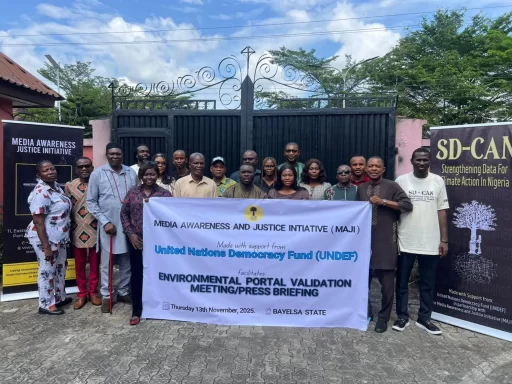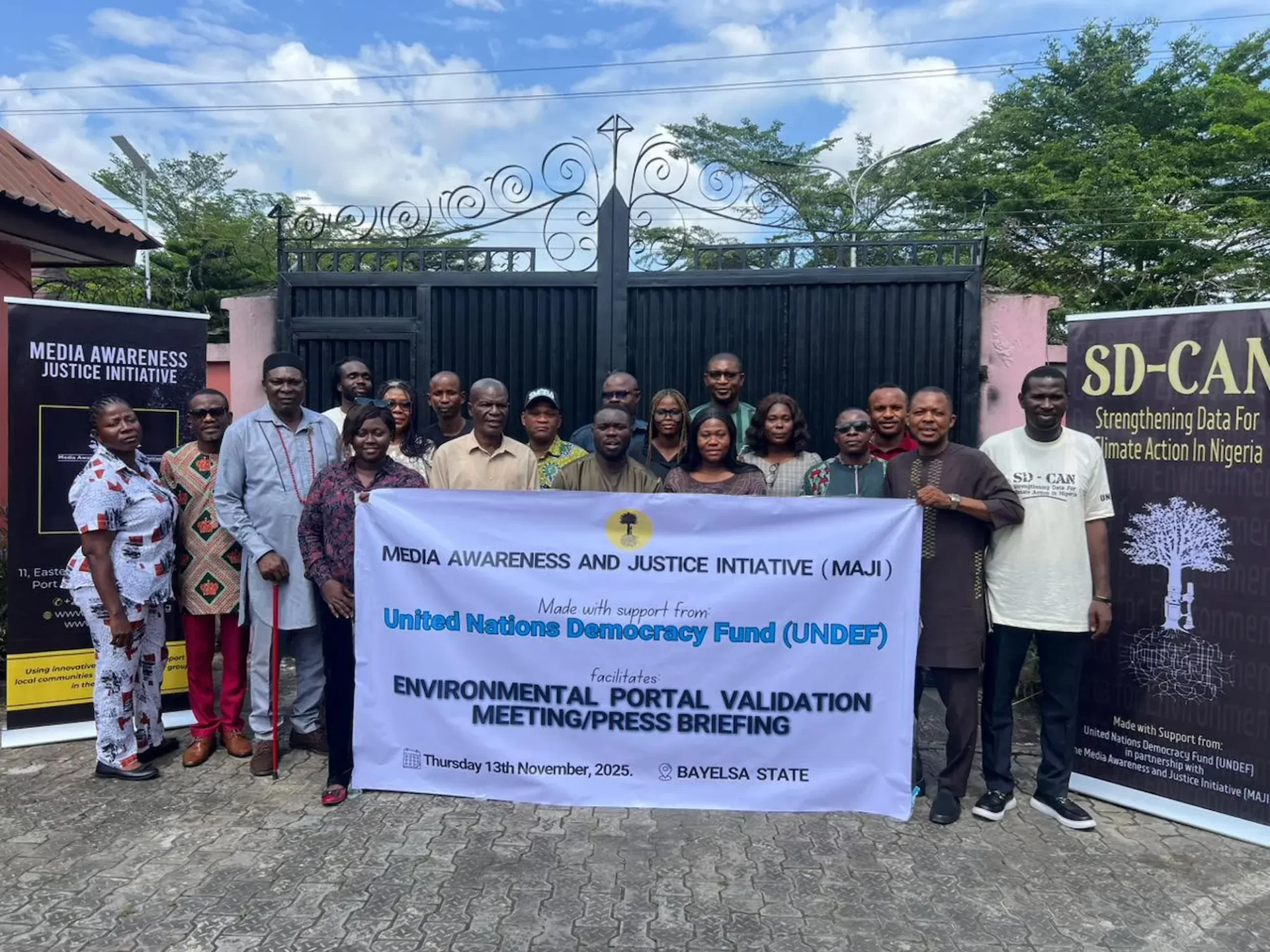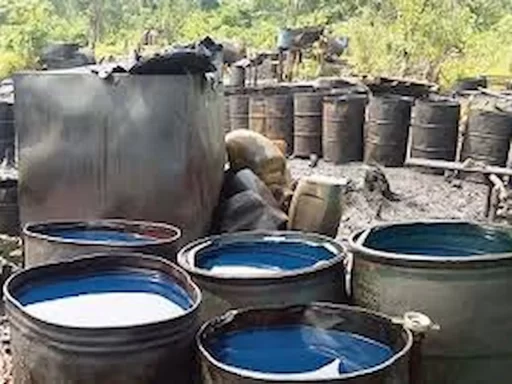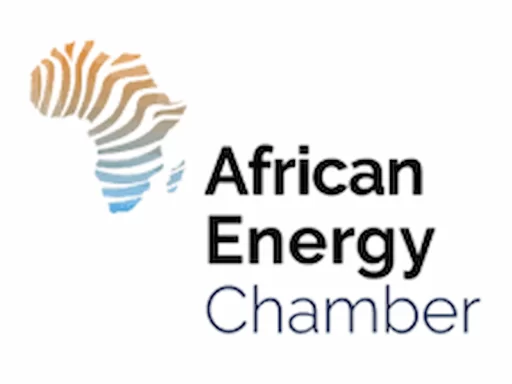Gas Flare Persists in Nigeria Because Oil Firms Are Profiting — CSO Group
By Naija Enquirer Staff
A Civil Society Organization (CSO), Media Awareness and Justice Initiative (MAJI), has asserted that gas flaring persists in Nigeria not because oil companies are incapable of stopping it, but because they continue to profit from the harmful practice.
The organisation made this known during a press conference in Yenagoa shortly after an Environmental Portal Validation Meeting. According to MAJI, the financial gains oil companies derive from flaring gas are the main reason timelines for ending gas flaring have repeatedly been shifted.
Speaking at the event, the Executive Director of MAJI, Okoro Onyekachi, represented by the MAJI Project Officer, Ikechukwu Ahaka, emphasised that the solution lies in data-driven engagement with stakeholders. He said that communities must begin to gather accurate information and data on emissions, gas flaring, and other forms of pollution affecting their environment.
He stated: “Over the years, we have seen different types of pollution affecting communities in the Niger Delta, especially in Rivers and Bayelsa States. These areas experience high levels of particulate and water pollution, resulting in chronic diseases across communities.”
He added that the persistent gas flaring continues because companies profit from it: “This is not because communities are unaware. The continuous gas flares and emissions occur in areas with industrial activities, and companies have constantly shifted the timeline for ending gas flaring not due to inability, but because they profit from it. And we are saying it has to stop.”
To achieve this, Ahaka stressed the importance of data: “To stop gas flare, we must begin to collect information around emissions and other activities that are polluting the environment. Nigeria currently ranks among the countries with the worst air quality in the world, and this has severely affected how we manage our environment.”
He explained that MAJI is working through an environmental data portal, datacab.io, where communities and stakeholders can upload pollution-related data. This will help drive evidence-based campaigns, informed actions, and strategic engagements with government agencies and relevant institutions.
According to him, the portal validation meeting brought together media representatives, community members, and government agencies, all of whom contributed to improving the platform’s effectiveness.
“As we take back all contributions made today and implement them, we are confident the portal will soon be expanded to the level stakeholders expect. The information collected will be used to engage critical stakeholders at all levels in Nigeria,” he added.







